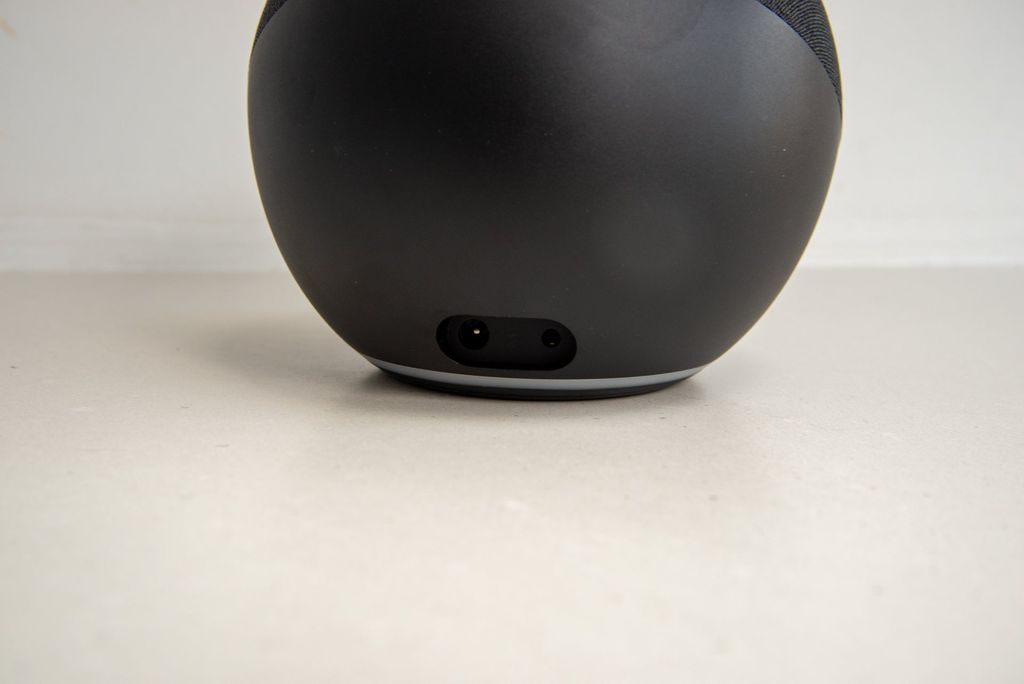The Amazon Echo is a smart speaker developed by Amazon that is powered by the Alexa voice assistant. It is designed to provide hands-free control and a wide range of features for users. In this article, we will analyze the pros and cons of the Amazon Echo and compare it to other smart speakers in the market.
Key Takeaways
- The Amazon Echo offers convenience and hands-free control for users.
- It is compatible with a wide range of smart home devices, allowing users to control their entire home with voice commands.
- The voice recognition and personalization features of the Amazon Echo make it a personalized assistant for users.
- The Amazon Echo integrates seamlessly with other Amazon services, such as Prime Music and Audible.
- However, privacy concerns have been raised regarding the always-on nature of the device and the collection of user data.
What is the Amazon Echo?

Overview of the Amazon Echo
The Amazon Echo is a smart speaker developed by Amazon. It is powered by the virtual assistant Alexa, which responds to voice commands and performs various tasks. The Echo is designed to be a central hub for controlling smart home devices, playing music, providing information, and much more. With its sleek design and advanced technology, the Amazon Echo has become a popular choice for those looking to enhance their home automation experience.
Key features of the Amazon Echo
The Amazon Echo offers a range of key features that make it a popular choice among users. One of the standout features is its voice recognition and personalization capabilities. The Echo uses advanced algorithms to learn your voice and preferences, allowing it to provide personalized responses and recommendations. Additionally, the Echo integrates seamlessly with other Amazon services, such as Amazon Prime Music and Amazon Prime Video, giving users access to a wide range of entertainment options. With its convenience and hands-free control, the Amazon Echo is a versatile smart speaker that enhances the overall user experience.
Pros of the Amazon Echo

Convenience and hands-free control
The Amazon Echo offers a high level of convenience with its hands-free control feature. Users can simply use voice commands to perform various tasks, such as playing music, setting reminders, or controlling smart home devices. This eliminates the need to physically interact with the device, making it especially useful when your hands are occupied or when you’re in another room. With the Echo, you can easily control your smart home ecosystem without having to reach for your phone or manually operate each device.
Additionally, the Echo’s voice recognition technology allows for a personalized experience. It can recognize different voices within a household, providing customized responses and tailored recommendations based on individual preferences. This feature enhances the user experience and makes the Echo feel more intuitive and user-friendly.
To further enhance the convenience, the Echo integrates seamlessly with other Amazon services. For example, you can use voice commands to order products from Amazon, check the status of your packages, or even listen to audiobooks from Audible. This integration makes the Echo a central hub for accessing various Amazon services, further streamlining your daily tasks and making your life more convenient.
Wide range of compatible smart home devices
The Amazon Echo is compatible with a wide range of smart home devices, allowing users to control their entire home automation system with just their voice. From smart lights and thermostats to security cameras and door locks, the Echo can seamlessly integrate with various devices to create a truly connected home. This compatibility extends to popular brands such as Philips Hue, Nest, Ring, and more, ensuring that users have a plethora of options to choose from when building their smart home ecosystem.
Voice recognition and personalization
The Amazon Echo is equipped with advanced voice recognition technology, allowing it to accurately understand and respond to user commands. This feature enables a seamless and hands-free user experience, as users can simply speak their requests without needing to press any buttons or navigate through menus. Additionally, the Echo offers a high level of personalization, as it can recognize different voices and tailor its responses and recommendations accordingly. This means that each member of the household can have a personalized experience with the device, receiving customized music recommendations, news updates, and more.
Integration with other Amazon services
The Amazon Echo offers seamless integration with other Amazon services, enhancing the overall user experience. By connecting your Echo device to your Amazon account, you can access and control various Amazon services, such as Amazon Music, Audible, and Prime Video. This integration allows you to easily play your favorite music, audiobooks, and movies through voice commands. Additionally, the Echo can provide personalized recommendations based on your Amazon purchase history and preferences. With the integration of Amazon services, the Echo becomes a central hub for accessing and enjoying a wide range of digital content.
Cons of the Amazon Echo

Privacy concerns
One of the main concerns surrounding the Amazon Echo is privacy. As the device is always listening for the wake word, there is a potential risk of unintentionally recording private conversations. While Amazon has implemented measures to address this concern, such as allowing users to delete their voice recordings, it is important for users to be aware of the potential privacy implications and take necessary precautions. It is recommended to review the device’s privacy settings and consider disabling certain features if privacy is a top priority.
Limited language support
The Amazon Echo currently supports multiple languages, including English, German, French, Spanish, Italian, and Japanese. However, it is important to note that not all features and skills are available in every language. For example, while English has the widest range of supported skills, other languages may have limited options. Additionally, the accuracy of voice recognition and natural language processing may vary across languages. It is recommended to check the official Amazon website for the most up-to-date information on language support and available features.
In terms of language compatibility, the Amazon Echo is primarily designed for English-speaking users, with the most comprehensive features and support available in English. Users who primarily speak other languages may find that some features are not fully optimized or may have limited functionality. It is worth considering language support when deciding to purchase an Amazon Echo, especially if you primarily communicate in a language other than English.
Dependence on internet connection
One of the main considerations when using the Amazon Echo is its dependence on an internet connection. The device relies on a stable and reliable internet connection to function properly. Without an internet connection, many of the Echo’s features and capabilities become limited or unavailable. For example, streaming music, accessing online services, and controlling smart home devices may not be possible without an internet connection. It’s important to ensure a strong and consistent internet connection when using the Amazon Echo to fully enjoy its benefits.
Lack of visual interface
One of the drawbacks of the Amazon Echo is its lack of a visual interface. Unlike other smart speakers that come with touchscreens or displays, the Echo relies solely on voice commands for interaction. While this can be convenient for hands-free control, it also means that users miss out on visual feedback and information. For example, when asking for the weather, the Echo can only provide a verbal response without displaying any graphics or charts. This limitation may not be ideal for users who prefer a more visual and interactive experience.
Comparison with other smart speakers

Amazon Echo vs. Google Home
When comparing the Amazon Echo and Google Home, it’s important to consider their key differences and similarities. Both devices offer voice-controlled smart assistants that can perform various tasks, such as playing music, providing weather updates, and answering questions. However, there are some notable distinctions between the two.
One major difference is the virtual assistant software used by each device. The Amazon Echo utilizes Amazon’s Alexa, while Google Home uses Google Assistant. Each assistant has its own strengths and weaknesses, so it’s worth considering which features are most important to you.
Another difference is the ecosystem of compatible devices and services. The Amazon Echo is known for its wide range of compatible smart home devices, allowing users to control their lights, thermostats, and more with voice commands. On the other hand, Google Home integrates seamlessly with other Google services, such as Google Calendar and Google Maps.
In terms of design, the Amazon Echo has a cylindrical shape with a fabric or metal exterior, while Google Home has a more compact and minimalist design. The choice between the two may come down to personal preference and how well the device fits into your home decor.
Overall, both the Amazon Echo and Google Home offer powerful smart assistant capabilities, but they have their own unique features and strengths. Consider your specific needs and preferences when deciding which device is right for you.
Amazon Echo vs. Apple HomePod
When comparing the Amazon Echo and the Apple HomePod, there are several key differences to consider. One important factor is the voice assistant technology used. The Amazon Echo utilizes Amazon’s Alexa, which is known for its extensive capabilities and wide range of skills. On the other hand, the Apple HomePod uses Siri, Apple’s voice assistant, which is known for its integration with other Apple devices and services. Another difference is the smart home compatibility. The Amazon Echo works with a wide range of smart home devices, while the Apple HomePod is more limited in its compatibility. Additionally, the sound quality of the speakers is an important consideration. The Apple HomePod is known for its impressive audio performance, while the Amazon Echo offers a more affordable option with decent sound quality. Ultimately, the choice between the Amazon Echo and the Apple HomePod depends on individual preferences and priorities.
Amazon Echo vs. Sonos One
When comparing the Amazon Echo and the Sonos One, there are a few key differences to consider. While both smart speakers offer excellent sound quality and voice control capabilities, there are some notable distinctions. The Amazon Echo has a wider range of compatible smart home devices, allowing for seamless integration with various devices in your home. On the other hand, the Sonos One offers a more immersive audio experience, with its ability to pair with other Sonos speakers for a multi-room setup. Additionally, the Sonos One supports multiple voice assistants, including Amazon Alexa and Google Assistant, giving users more flexibility in their choice of voice control. Ultimately, the decision between the Amazon Echo and the Sonos One depends on your specific needs and preferences.
Conclusion

Final thoughts on the Amazon Echo
The Amazon Echo is a versatile smart speaker that offers a wide range of features and benefits. With its convenience and hands-free control, users can easily interact with the device using voice commands. The Echo is also compatible with a variety of smart home devices, allowing users to control their entire home automation system with ease. Additionally, the voice recognition and personalization features of the Echo make it a personalized assistant that can cater to individual preferences. Integration with other Amazon services, such as Prime Music and Alexa Skills, further enhances the user experience.
However, there are some drawbacks to consider. Privacy concerns have been raised regarding the Echo’s always-on listening capabilities. While Amazon has implemented security measures, some users may still have reservations about having a device constantly listening in their homes. The Echo also has limited language support, which may be a disadvantage for non-English speakers. Additionally, the Echo relies heavily on an internet connection, so users in areas with unstable or slow internet may experience interruptions in functionality. Lastly, the lack of a visual interface may be a drawback for users who prefer a more visual interaction with their smart devices.
In comparison to other smart speakers, the Amazon Echo stands out with its wide range of features and compatibility with other Amazon services. When compared to the Google Home, the Echo offers a more extensive ecosystem and a wider range of compatible devices. The Apple HomePod, on the other hand, focuses more on audio quality and integrates seamlessly with other Apple devices. The Sonos One is known for its superior sound quality and multi-room audio capabilities.
In conclusion, the Amazon Echo is a powerful smart speaker that offers convenience, personalization, and integration with other Amazon services. However, users should consider the privacy concerns, limited language support, dependence on internet connection, and lack of visual interface before making a purchase decision.
Conclusion
In conclusion, the Amazon Echo offers a range of benefits and drawbacks. On the positive side, it provides a convenient and hands-free way to access information, control smart home devices, and enjoy entertainment. The voice recognition technology is impressive and the device is constantly improving with regular updates. However, there are some concerns regarding privacy and security, as the device is always listening and storing data. Additionally, the reliance on voice commands can be limiting for those with speech impairments or in noisy environments. Overall, the Amazon Echo is a powerful and innovative device that has transformed the way we interact with technology, but it is important to consider the potential drawbacks before making a purchase.
Frequently Asked Questions
1. How does the Amazon Echo work?
The Amazon Echo uses voice recognition technology to respond to voice commands. It connects to the internet and uses Amazon’s Alexa voice service to provide information, play music, control smart home devices, and more.
2. Can I use the Amazon Echo to control my smart home devices?
Yes, the Amazon Echo is compatible with a wide range of smart home devices. You can use voice commands to control lights, thermostats, locks, and more.
3. Is the Amazon Echo always listening?
Yes, the Amazon Echo is always listening for its wake word, which is usually ‘Alexa’. However, it only starts recording and sending data to the cloud after it hears the wake word.
4. Can I use the Amazon Echo to make phone calls?
Yes, you can use the Amazon Echo to make hands-free phone calls to other Echo devices or to phone numbers in the United States, Canada, and Mexico.
5. Can I use the Amazon Echo without an internet connection?
No, the Amazon Echo requires an internet connection to function. It needs to connect to the internet to process voice commands, access information, and control smart home devices.
6. How does the Amazon Echo protect my privacy?
The Amazon Echo only starts recording and sending data to the cloud after it hears the wake word. You can also review and delete your voice recordings in the Alexa app.




